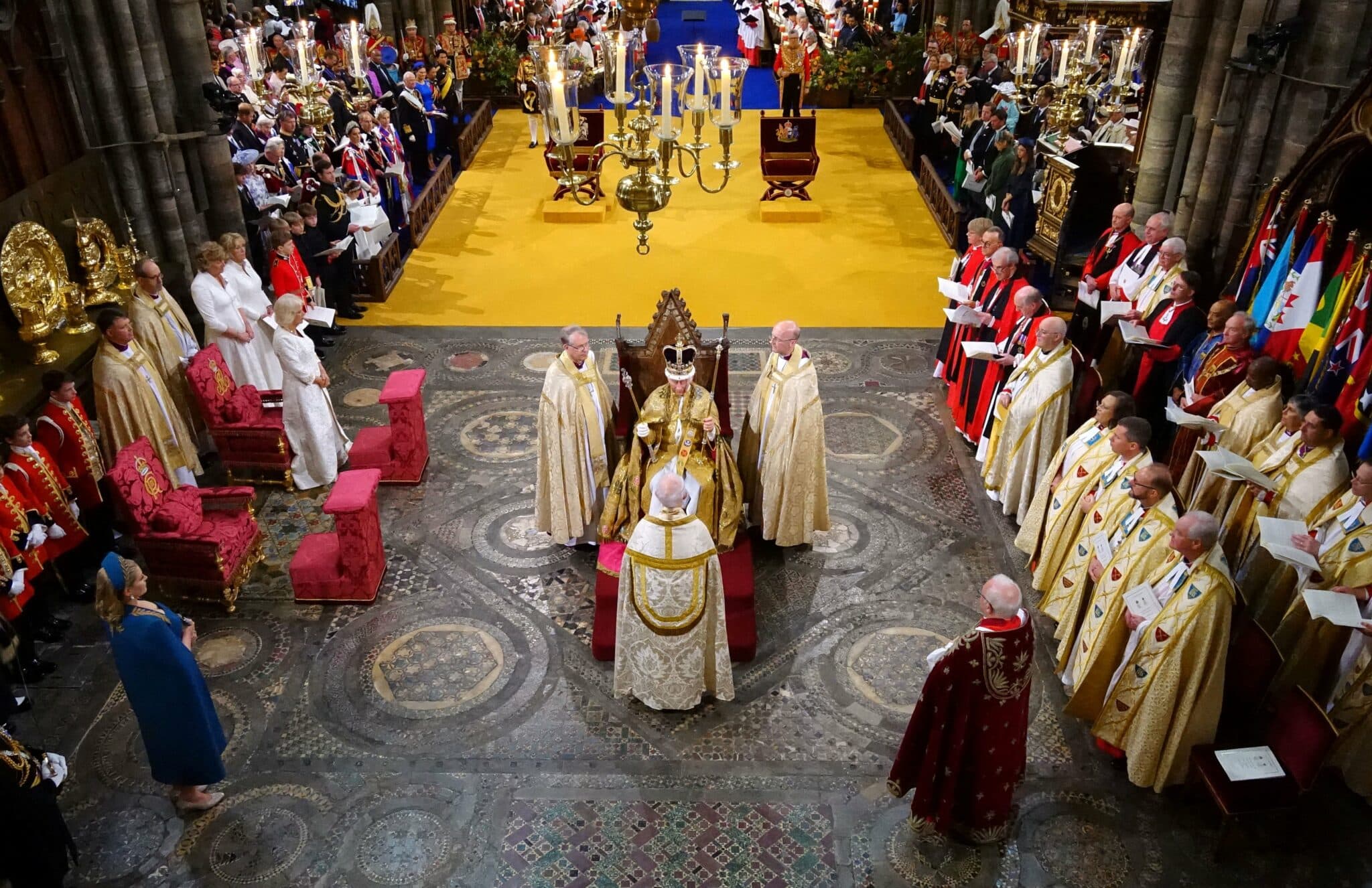
“Give the king your judgements, O God, and your righteousness to the son of a king. Then shall he judge your people righteously and your poor with justice.”
As these lines from Psalm 72 rang out in Greek chant throughout Westminster Abbey, and the freshly-anointed King Charles III was garbed in robes resembling nothing less than the Byzantine imperial sakkos, any Australian could be forgiven for thinking this pomp and ceremony was a medieval fantasy.
King Charles is presented with the Jewelled Sword of Offering and his spurs as the Byzantine Chant Ensemble sings a Greek Orthodox offering.
The Liturgical piece of music was requested specifically by King Charles III as a tribute to his late father Prince Philip of Greece. pic.twitter.com/phSUZMsyoK— Greek City Times (@greekcitytimes) May 6, 2023
Indeed, the ABC journalist Stan Grant said just that in his coronation coverage, which criticised the monarchy for its role in the dispossession of indigenous people, and has attracted bitter rebukes from the nation’s monarchists.
“This is the real Australia, before we get to the fantasy Australia, the Disneyland Australia, let’s deal with the real Australia,” Mr Grant said.
“Let’s not imagine that we can just look at this ceremony tonight and see this as something that is distant, that is just ceremonial and doesn’t hold weight. It is scars, it is broken bones and it is too many damaged souls and we need to heal.”
Behind Mr Grant’s remarks is the view that tradition, ritual and ceremony serve as a spectacle that conceals the true reality of power: brutal, callous, parasitic and exploitative of the people. Undoubtedly this has been true at many times in history, even (and perhaps especially, given the church’s high calling) in Christian history. But it is also an overly negative view of the relationship between ritual and power.
Power is not obfuscated by ritual but is constituted by it. Rituals shape and give form to the ways in which power may be exercised legitimately. We have our own everyday liturgies that legitimise all kinds of actions: handshakes, elections, referenda, the signing of contracts, the sharing of meals. Yet without ceremony of a higher register, and the literacy to understand it, we run the risk of discipline, law, state, election and marketplace being the only rules to delimit what power can do; or perhaps it would be better to say, what power can get away with.
When Charles III was dressed in his Byzantine finery, it would have been lost on many critics that the sakkos represents the seamless tunic worn by Christ during his trial, humiliation and Passion. It is the robe of disgrace, transformed into the robe of glory by the cross. By dressing the King in gold, attention is drawn more sharply to the frail flesh beneath.
Is this fantasy, the transformation of a man into a demigod and King to be worshipped, like Pharoah, Xerxes or Nebuchadnezzar? Or is it a reminder that, as Isaiah said to King Hezekiah: “Put your house in order, because you are going to die; you will not recover” (2 Kings 20:1).
This ancient notion, that the good King puts the house in order, bringing fertility, flourishing and justice, while the wicked King despoils the land, leaving it barren and the people destitute, is among the deepest archetypal themes in our culture. Aside from the Biblical record, and the annals of history, one can see this theme working itself out everywhere in popular media: Simba overthrows Scar in The Lion King to restore the circle of life; Aragorn’s heroism restores Gondor to its glory in The Lord of the Rings; Paul Atreides in Dune frees the planet Arrakis from its exploitation for spice by the Emperor of the Known Universe.
“In His name and after His example, I come not to be served but to serve.”#Coronation pic.twitter.com/DZnlxWSSVS
— Royal Central (@RoyalCentral) May 6, 2023
All these fictional Kings must descend first into hell before they may take the throne and put things to rights; thus the model for all true rule is Christ himself. Where the prototype differs from the reality, and royalty neglects to model longsuffering for their people, then their badges of office become marks of shame.
If Mr Grant’s criticism judges the monarchy by this standard—that it ought to do more to heal the wounds of colonialism—then so be it: the King is also a sacrifice. He must hear his people’s sadness, troubles, ignorance and resentment as much as their joy. That is the burden of rule. Kings have always heard and resolved complaints.
All of us are must “rule,” at least in some part of our lives. And those shaped by the rituals of faith and not merely the dog-eat-dog habits of parliament and marketplace are called to (and very often do) rule in the spirit of the King of Kings. This is because the Eucharist, as the rite to end all rites, does not “conceal” the reality of this world’s brutal power, but unmasks it and constantly exhorts us to reject it.
In 21st century Australia this call is far from a fantasy, even a fantasy dressed in Byzantine robes. It was stirring to see our Head of State affirm as much, and to say before the whole world that he takes the throne in the same spirit as his mother: to serve, and not to be served.
